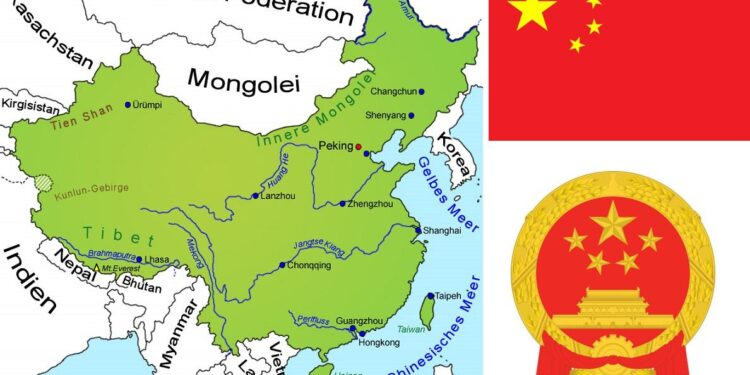Overview: China’s Expanding Role in Bangladesh and South Asia
In the past decade, Bangladesh has become a central element in China’s strategic vision to deepen its influence throughout South Asia. Positioned at a crucial geographic crossroads between India and Myanmar, Bangladesh serves as an essential partner within Beijing’s ambitious Belt and Road Initiative (BRI). This article explores the multifaceted nature of China’s growing engagement with Bangladesh—highlighting significant infrastructure investments, mounting debt concerns, and efforts to establish a naval foothold in the Bay of Bengal. Beyond economic collaboration, this evolving partnership carries profound implications for national sovereignty, regional security balances, and geopolitical power dynamics across Asia. As both countries strengthen their ties, they face complex challenges that will shape the future trajectory of their alliance.
China-Bangladesh Economic Collaboration: Infrastructure Growth and Strategic Ambitions
China has rapidly positioned itself as one of Bangladesh’s foremost development partners by channeling substantial capital into critical infrastructure projects under the BRI framework. These initiatives aim not only to enhance connectivity but also to stimulate trade flows within South Asia and beyond. A flagship example is the recently completed Padma Multipurpose Bridge, which dramatically shortens travel times between southern districts and Dhaka while unlocking new economic opportunities for millions. Complementary projects include upgrades to major transport arteries like the Dhaka–Chattogram Expressway, alongside modernization efforts at key maritime gateways such as Chattogram Port—vital for boosting export-import efficiency.
However, China’s involvement extends beyond commercial interests; it reflects broader strategic calculations designed to cement its presence in this geopolitically sensitive region. Investments aimed at enhancing Bangladesh’s naval infrastructure underscore Beijing’s intent to secure maritime routes critical for trade security while projecting power across the Bay of Bengal. The infusion of Chinese financing into defense-related sectors signals an emerging military dimension intertwined with economic cooperation—a dual approach that raises questions about Dhaka’s autonomy amid intensifying great-power competition.
Debt Dependency Risks Amidst Growing Chinese Influence
While Chinese-funded projects have accelerated infrastructural progress in Bangladesh, they come bundled with financial risks that warrant careful scrutiny. The rapid accumulation of loans from Beijing poses potential threats related to debt sustainability—a concern echoed by economists monitoring developing economies engaged heavily with China. Although these funds enable swift project execution compared to traditional multilateral lenders’ timelines, they may entangle Bangladesh in cycles where new borrowing becomes necessary simply to service existing debts.
Key vulnerabilities associated with this “debt-trap diplomacy” include:
- Escalating Financial Obligations: Increasing loan repayments could strain national budgets if projected revenues from funded projects fall short.
- Strategic Leverage: Debt burdens might translate into political influence or control over vital assets should repayment difficulties arise.
- Diminished Economic Diversification: Overreliance on Chinese capital risks sidelining alternative investment sources from other global partners like Japan or India.
Moreover, these financial dependencies carry geopolitical weight given Bangladesh’s pivotal location near contested maritime zones and regional flashpoints involving India-China rivalry. The prospect that critical infrastructure could fall under foreign control amplifies concerns about sovereignty erosion—especially when coupled with expanding military cooperation between Dhaka and Beijing.
| Main Concern | Description |
|---|---|
| Sovereignty Risks | The possibility that defaulted loans lead to foreign management or ownership of key assets. |
| Geopolitical Pressure | The use of economic leverage by China potentially influencing Bangladeshi policy decisions. |
| Erosion of Autonomy | The narrowing scope for independent foreign relations due to dependency on one dominant partner. |
Maritime Security Challenges: China’s Naval Expansion Alongside Economic Ties
China’s increasing naval activities around the Bay of Bengal represent a significant shift affecting regional security architectures involving India, Myanmar, Sri Lanka—and notably Bangladesh itself. Through investments supporting port development such as Cox’s Bazar deep-sea port enhancement plans (still underway) alongside operational support at Myanmar’s Sittwe port via trilateral agreements under BRI corridors like BCIM (Bangladesh-China-India-Myanmar), Beijing is steadily augmenting its maritime reach.
Key elements defining this expansion include:
- Strategic Maritime Infrastructure: Development or upgrade of ports enabling dual-use capabilities—commercial logistics combined with potential military deployment.
- Joint Naval Exercises: Enhanced frequency and scale signal closer defense collaboration between China and Bangladeshi forces.
- Surveillance & Intelligence Gathering: Deployment of advanced monitoring systems increases situational awareness but also raises sovereignty concerns among neighboring states.
This growing presence complicates India’s traditional dominance over Bay waters; New Delhi views these developments warily amid fears that Dhaka might be drawn into broader containment strategies orchestrated by Beijing against Indian influence zones.
| Nation | Naval Budget 2023 (USD) | % Annual Growth Rate | ||
|---|---|---|---|---|
| China | $50 billion | 8% | ||
| India | $25 billion | 5%< tr >< td >Bangladesh | $2 billion | 10%
The rapid growth rate seen in Bangladeshi naval spending reflects attempts not only at coastal defense modernization but also alignment toward greater interoperability with Chinese forces—a trend likely influenced by ongoing bilateral agreements focused on joint training exercises and technology transfers. Conclusion: Balancing Development Prospects With Sovereign Integrity Amid Geopolitical ShiftsAs China’s expansive ambitions continue reshaping Asian geopolitics—with ramifications extending globally—Bangladesh stands at a crossroads defined by opportunity interwoven tightly with risk factors tied primarily to debt sustainability and strategic autonomy preservation. While infrastructural advancements financed through BRI promise transformative benefits capable of accelerating socioeconomic growth trajectories across multiple sectors—from transportation networks facilitating commerce worth billions annually—the accompanying increase in external dependence demands vigilant governance frameworks ensuring transparency & accountability regarding loan terms & project viability assessments. Simultaneously navigating enhanced military cooperation without compromising independent policymaking remains paramount given competing pressures exerted by neighboring powers wary about shifting alliances within South Asia’s delicate balance-of-power environment. Ultimately,the choices made today will reverberate far beyond Dhaka — influencing regional stability patterns well into coming decades—as stakeholders weigh how bestto harness developmental gains while safeguarding national interests amidst intensifying great-power rivalries shaping twenty-first century geopolitics. |














